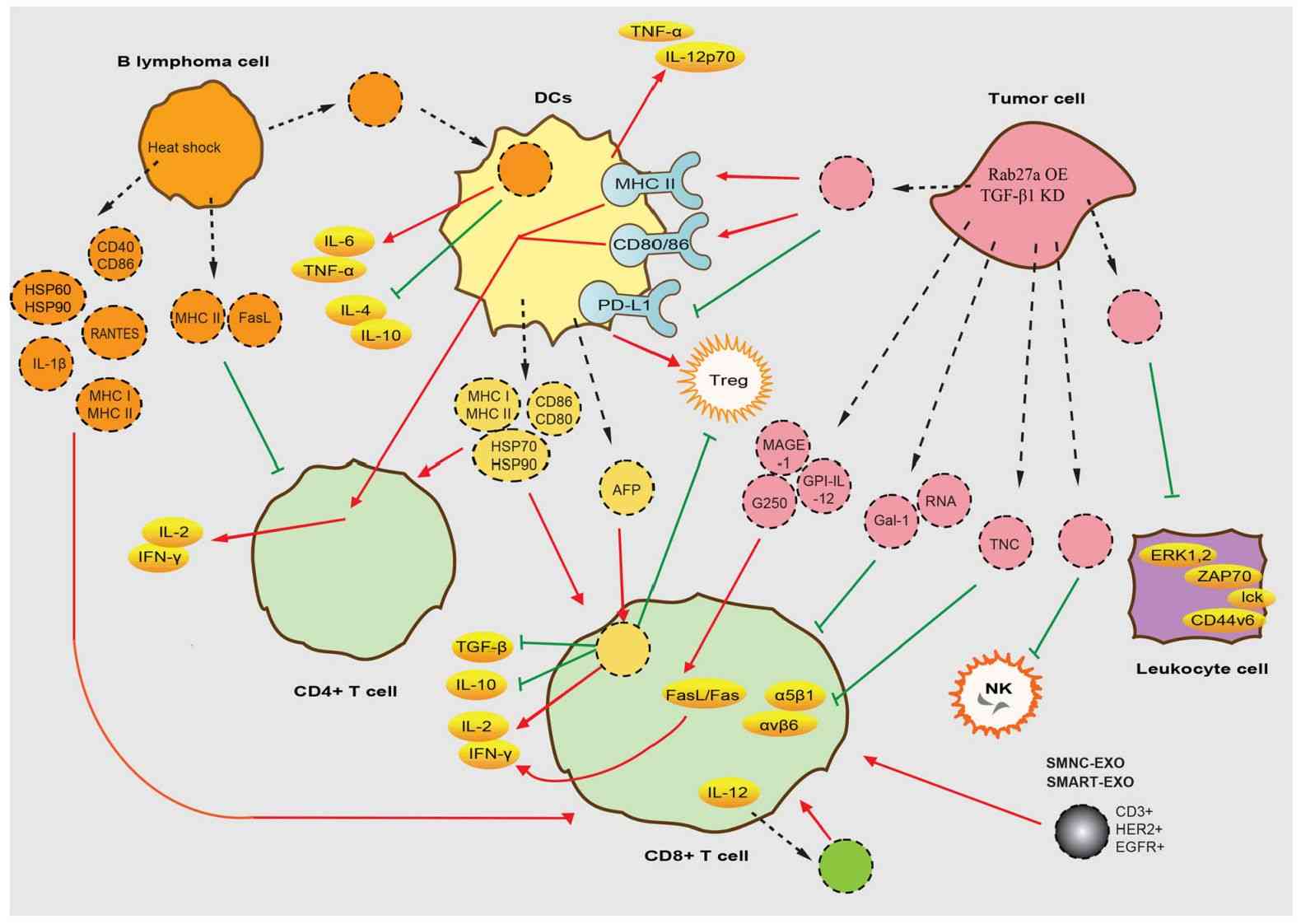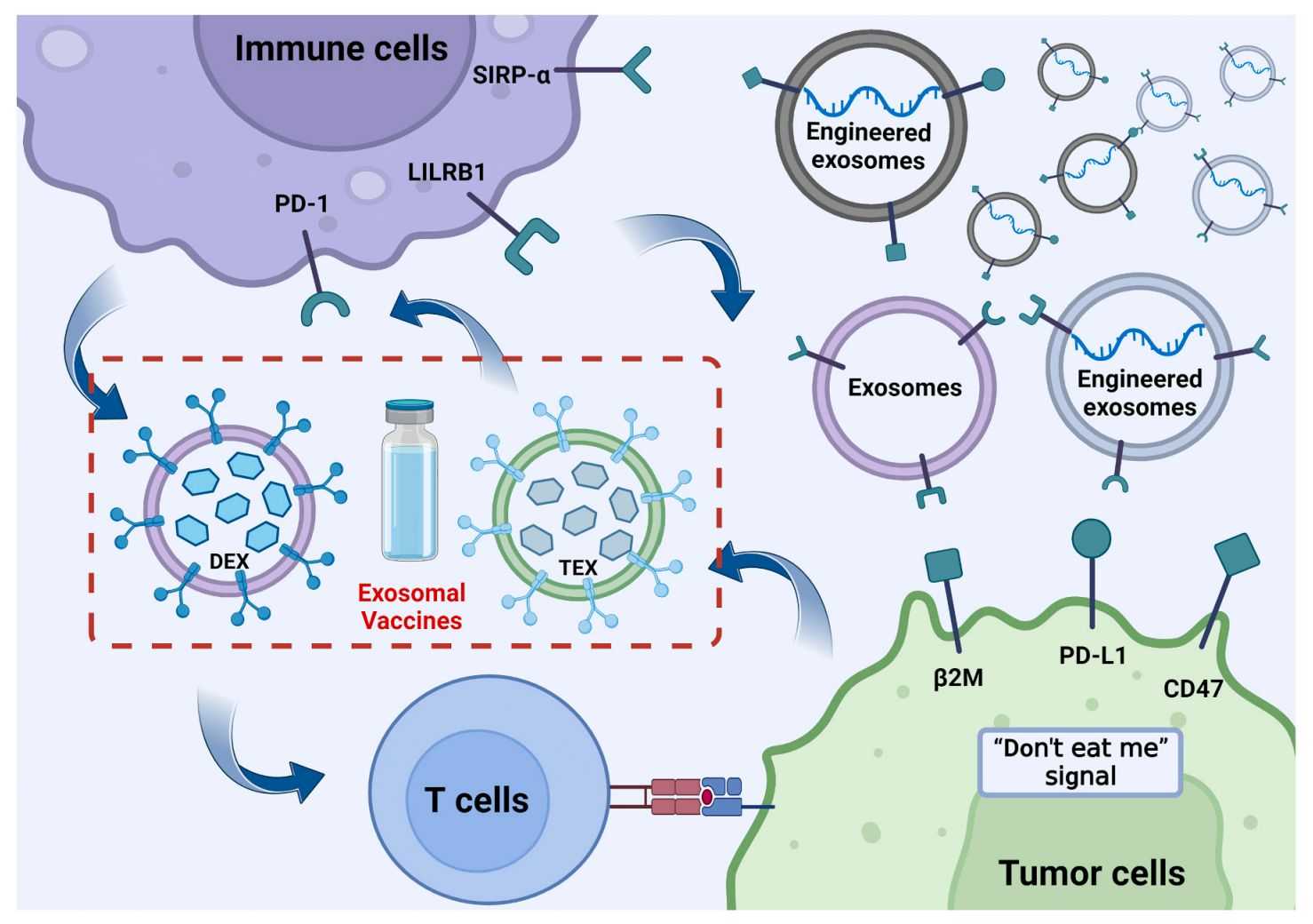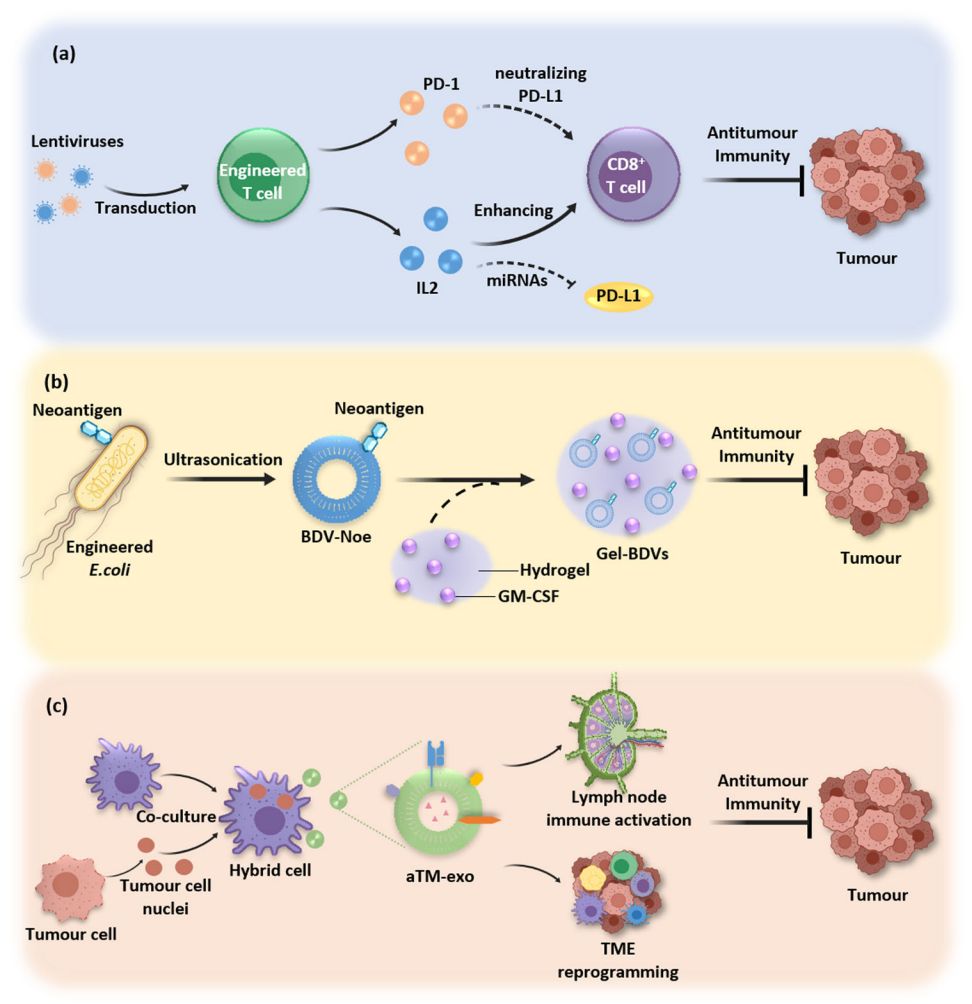What is Exosome-based Tumor Immunotherapy?
Tumor immunotherapy uses the body's immune system to selectively target tumor cells, revolutionizing the treatment landscape for malignant tumors. Despite impressive progress, challenges remain. Recent evidence suggests that immune cell-derived exosomes modulate the immune system to generate effective anti-tumor immune responses and represent a cutting-edge therapeutic strategy.
Why are Exosomes Used in Tumor Therapy?
Exosomes are nanoscale vesicles that shuttle a wide range of biomolecules such as nucleic acids, proteins, lipids, amino acids, and metabolites and play a key role in regulating intercellular communication. Exosomes can be used in tumor therapy in different ways. During the initial stages of cancer, the amount of tumor-derived exosomes (TEX) is significantly higher than that of normal cells and is thought to reflect the molecular characteristics of various cancers. The development of therapies to reduce TEX secretion may inhibit tumorigenesis.
It has been found that exosomes can exert physiological activity through a variety of mechanisms, including phagocytosis, cytosolization, fusion, and endocytosis. These unique mechanisms of cellular uptake of exosomes have facilitated the development of exosome-based cancer therapies. In addition, exosomes play an important role in mediating the messaging between tumor cells and tumor-associated macrophages (TAMs) in the microenvironment, which may provide new targets for antitumor therapy.
 Figure 1. Mechanisms of exosome regulation of immune cells. (Xu Z, et al., 2020)
Figure 1. Mechanisms of exosome regulation of immune cells. (Xu Z, et al., 2020)
What is Exosome-based Tumor Immunotherapy?
Exosome-based therapies are cutting-edge strategies to inhibit tumor progression or enhance anti-tumor immunity. Studies have shown that exosomes can readily cross biological barriers, such as the blood-brain barrier, and can be modified to improve efficiency. Due to the transfer ability, lipid bilayer structure, and unique surface proteins, exosomes can be used as nanoparticle carriers of drugs, nucleic acids, and proteins for recipient cancer cells.
 Figure 2. Role of exosomes in tumor immunotherapy. (Liu C, et al., 2023)
Figure 2. Role of exosomes in tumor immunotherapy. (Liu C, et al., 2023)
Given the crucial role of TAM in exosome-mediated crosstalk, modulating macrophages is an effective strategy for tumor therapy. Exosomes can be used as carriers of drugs and siRNA to reverse M2 TAM-induced immunosuppression. In addition, reprogramming TAM to the M1 phenotype is another strategy. With exosomes derived from M1 macrophages, M2 macrophages can be stimulated to polarize to the M1 phenotype and intravenously injected into animal models to inhibit tumor growth in vivo.
In addition, exosomes contain tumor antigens and can be used as vaccines for cancer immunotherapy. Dendritic cell (DC)-derived exosomes can be loaded with multiple antigens (e.g., MHC I, MHC II), which stimulate CD4+ helper T cells and CD8+ CTLs to induce antitumor responses. For example, subcutaneous injection of TAE-DC vaccine significantly restores activated T cells in TME and improves therapeutic efficacy.
Common Immune Cell-derived Exosomes
Immune cell-derived exosomes play an immunomodulatory role due to the biologically functional cargo of proteins and nucleic acids derived from their parental cells.
| Cat No. | Product Name | Source |
| Exo-IC01 | HQExo™ Exosome-BC3 | Exosome derived from human B lymphocyte cell line (BC-3 ) |
| Exo-IC02 | HQExo™ Exosome-JM1 | Exosome derived from human T pre-B lymphoblast cell line (JM1) |
| Exo-IC03 | HQExo™ Exosome-Jurkat E6-1 | Exosome derived from human T lymphocyte cell line (Jurkat E6-1) |
| Exo-IC04 | HQExo™ Exosome-RAWS 264.7 | Exosome derived from mouse macrophage cell line (RAWS 264.7) |
| Exo-IC05 | HQExo™ Exosome-JAWSII | Exosome derived from mouse bone marrow immature dendritic cell line (JAWSII) |
| Exo-IC06 | HQExo™ Exosome-NK | Exosome derived from human NK cell line |
| Explore All Exosomes Isolated from Immune-related Cell Lines | ||
- NK Cell-derived Exosomes (NK-Exo)
NK cells not only kill tumor cells directly but also promote adaptive immune responses in T cells and B cells. It is found that NK-Exo contains typical NK markers and cytotoxic proteins that lead to cytotoxicity in cancer cells. It is shown by transcriptional analysis that NK-Exo can activate the anti-tumor immune function of NK cells.
- Dendritic Cell-derived Exosomes (Dex)
Dendritic cells (DCs), as the main antigen-presenting cells, have powerful functions in antigen uptake, processing, and presentation, and are one of the main "messengers" that transmit cancer cell signals to T cells. It has been reported that dendritic cells complete the whole process of anti-tumor immunity by forming exosomes.
- T Cell-derived Exosomes
T cells are the most common tumor-infiltrating lymphocytes in TME. Researchers have found that T cell-derived exosomes can activate the immune activity of immune cells. Recently, it has been reported that CAR-T cells can secrete CAR-containing exosomes (CAR-Exo), which exhibit anti-tumor effects against some solid tumors such as breast, lung, and ovarian cancers.
- B Cell-derived Exosomes
B cells act as antigen-presenting cells that directly activate T cells and macrophages. Researchers have found that exosomes secreted by B lymphocytes play a role in antigen presentation by inducing antigen-specific CD4+ T cell responses via peptide-MHC class II complexes on their surface.
- Neutrophil-derived Exosomes (N-Ex)
Neutrophils may serve as correlates of anti-tumor immunity and enhance the efficacy of immunotherapy. Researchers created exosome-like nanovesicles from neutrophils as a novel delivery vehicle for chemotherapeutic drugs and almost eliminated tumor growth in a gastric cancer model.
- Mast Cell-derived Exosomes
Mast cells (MC) are myeloid cells found in the connective tissues of the body that can exert either pro- or anti-tumor functions in different types of tumors. Thus, mast cells are an under-recognized but promising target for cancer immunotherapy.
Constructing Exosomes for Immunotherapy of Solid Cancers
Natural exosomes derived from immune cells or tumor cells can trigger anti-tumor activity. However, challenges remain in the clinical use of natural exosomes. For example, natural exosomes are insufficiently targeted, heterogeneous, and complex. Therefore, artificially modified engineered exosomes have emerged as a new therapeutic strategy. Compared with natural exosomes, engineered exosomes offer tumor targeting, high stability, controlled drug release, and long-term cycling, which can improve the efficacy and safety of exosome-based cancer therapeutics.
In recent years, targeting the engineering of exosomes has been realized mainly through chemical modification and bio-fusion expression. Researchers constructed T cells by transfecting them with GFP-PD-1 lentivirus, which produced exosomes expressing PD-1, thereby neutralizing PD-L1 and reactivating tumor-infiltrating CD8+ lymphocytes. In addition, exosomes derived from engineered T cells expressing IL-2 inhibited tumor progression by downregulating PD-L1 levels in cancer cells through reprogramming miRNA levels.
 Figure 3. Engineered exosomes for immunotherapy of solid tumors. (Lyu C, et al., 2024)
Figure 3. Engineered exosomes for immunotherapy of solid tumors. (Lyu C, et al., 2024)
As a hot field in recent years, exosomes can play multiple roles in tumor immunotherapy. Exosome-based therapies represent a promising and reliable new strategy for cancer immunotherapy.
Creative Biostructure provides clients with high-quality exosome products and one-stop exosome services. By providing exosomes isolated from cancer cell lines and immune-associated cell lines, as well as research services on exosomes and tumor immunity, we guide our clients in the development of next-generation cancer therapeutics. If you are interested in our services and products, please feel free to contact us for more information.
References
- Xu Z, et al. Exosome-based immunotherapy: a promising approach for cancer treatment. Mol Cancer. 2020. 19(1): 160.
- Liu C, et al. Biology and function of exosomes in tumor immunotherapy. Biomed Pharmacother. 2023;169:115853.
- Lyu C, et al. Roles of exosomes in immunotherapy for solid cancers. Cell Death Dis. 2024. 15(2): 106.
- Xie J, et al. Recent advances in exosome-based immunotherapy applied to cancer. Front Immunol. 2023. 14: 1296857.